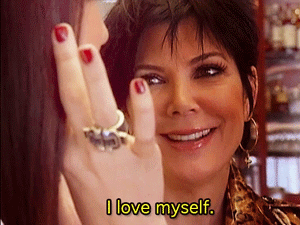It’s summer vacation and you’re sitting at the dinning table at a family reunion. Aunt Becky sits across from you asks what your major is. You reply, “English.” You already know what’s coming next—“So what are you going to do with that when you graduate?” To which you respond with gusto, “Write, Aunt Becky. I want to be a writer.” Let’s be honest: Not too many people will understand your passion, and they’re going to have an even harder time imagining your success. This is the English major’s dilemma. Can we actually make a career out of writing? According to two renowned professors at the University of Florida, the answer is yes.
1. Write because you love it

English majors constantly write. It comes naturally because it’s our passion (alongside reading of course). Don’t let it feel like an obligation or requirement. Professor, Associate Chair and Undergraduate Coordinator of the UF English Department Stephanie A. Smith recounted what two other writers told her. “[A] writer never gives up because they can’t live without writing. If you can live without it, you aren’t really a writer.” University of Florida Professor Dr. Sidney Homan provides an equally inspiring sentiment. “I love to write because, for me, it’s like putting paint on a canvas, but—to beat the metaphor into the ground—the paint here is not just an inanimate material but something I love, respect, relish when speaking, something alive.”
2. Slow and steady wins the race

As a young and developing writer, sometimes it feels hard to contain your eagerness. Both Dr. Smith and Dr. Homan, however, drive home that it’s important to pace yourself. Although it might take extra time and help, the editing process is essential. Dr. Homan said his wife takes charge with much of his editing and admitted that lending his work to another pair of eyes (and hands) isn’t always an easy task. “[S]he took the opening chapter in my book Beckett’s Theatres…cut it from 150 pages to about 40, with my screaming with each word she took out, as if someone were pulling skin from my chest. But when the book came out, reviewers (who otherwise had mixed opinions about my work) all commended ‘the economy’ of that chapter on Godot,” said Dr. Homan.
3. Discipline, discipline, discipline

Do you ever have a hard time finishing up a piece? Do you find yourself with random paragraphs scattered about your laptop and journal? Admit it or not, you’ve got a discipline problem. Dr. Smith said that daily writing practices and setting her own deadlines help her to overcome this challenge. Dr. Homan offered some advice from his past. “I learned from an old high school coach to set a date when a project would be finished. If, say, half the time was up and you had only finished a quarter of the project, then you forced yourself, ‘punished’ yourself, by having to do the final three-quarters in the other half of the time remaining. You soon learned to pace yourself so you wouldn’t get rushed like this.” If you ever want to make in the real world as a writer, you have to get comfortable making deadlines at the drop of a hat. Better to start now than after you missed your first deadline—and then lose your first job.
4. Don’t fall in love with your voice

We put our blood, sweat and tears into our writing; the last thing we want is to hear is that we failed. The truth is, though, constructive criticism drives progress and development. Dr. Homan acknowledged sensitivity to criticism as one of the most challenging aspects of creativity. “[K]eeping my integrity as a writer while taking criticism from readers and editors…makes an improvement, while holding my ground at other times [is also necessary]… [G]etting rejected, the essay or book turned down and learning how to live with that [are the most frustrating parts],” said Dr. Homan.
5. When discouraged, get back up

While some people offer constructive criticism that fuels your fire, there will always be jerks out there that will put you down for the sake of it. Dr. Smith recalled those who discouraged her choice to write. “My brothers, my father, my colleagues in the academy. I just don’t listen to them. It took awhile but I just tune negativity out,” said Dr, Smith. Initially it may be difficult to tune out the white noise, but learn to sift through the constructive and deconstructive critics. Someone’s negative remark shouldn’t end your writing. Smith’s final advice to aspiring writers? “Be open, be flexible, and remember that persuasive argumentative skills can change a person’s mind, get your foot in a door, or even open doors. If you are passionate about your work, then stick to it because those who give up on what they love will die inside.”



















